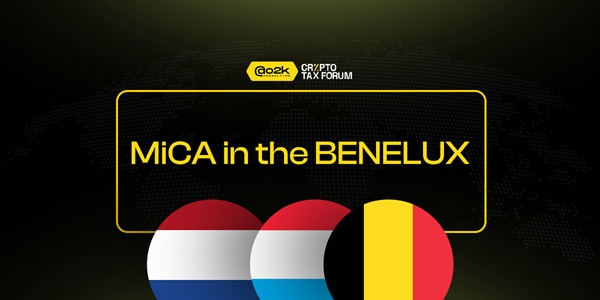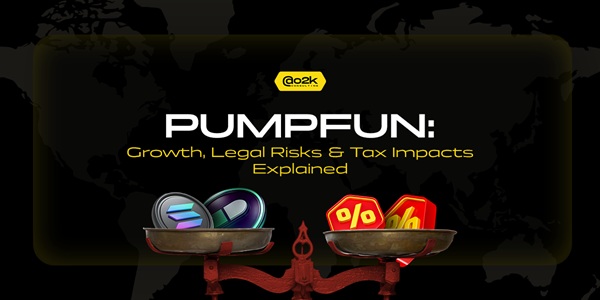
Several industries are influenced by counterfeiting. This problem can harm consumer health and affect brand image and sales. According to Statista, in 2020 there was a sales loss from the counterfeit of more than 45 billion euros in all the retail industries. The most impacted industries are, in this order, clothing, pharmaceuticals, and cosmetics/personal care. Counterfeiting is a difficult problem, but a new blockchain-based technology called Digital Product Passport (DPP) may provide an answer to it.
Today, supply chain traceability management relies heavily on traditional methods like ERPs, spreadsheets, and centralized databases for tracking purposes. At each stage of a product movement along the supply chain, information about its origin, manufacturing sources, and distribution channels must be manually recorded (semi-manual when it is scanned) and traced. Errors in this process could happen in different ways and in different stages in the supply chain and they could be intentional or unintentional.
Invoices, bills of lading, and quality control reports help verify the genuineness and integrity of various products across the value chain from manufacturers to distributors and then finally to retailers. Despite this, it is possible to find inaccuracies in reports or data as it can be tampered with through manipulation. Insufficiency of immediate insight concerning the supply chain and lack of a central data exchange system aggregating data from different agents along the supply chain have always delayed this problem identification and solution. Monitoring by hand is arduous, lengthy, and human-prone, which poses difficulties in ensuring transparency and accountability through the entire process of supply chain management.
Digital Product Passport (DPP), on the other hand, stands out from traditional traceability approaches by promoting supply chain transparency and decentralization. In contrast to manual records or central databases, DPP employs blockchain technology to create an immutable ledger for product information. By uploading product data to the blockchain, it becomes accessible to anyone interested, and due to its technological nature, the process is tamper-proof. This ensures that any product history modifications can be easily traced. Every product is given a unique digital passport that records its source, how it was made, and where it has been sent.
The DPP can provide information about a product such as its origin, manufacturing processes, raw material sourcing, quality control measures, distribution history, environmental impact, compliance with ethical standards, and adherence to regulatory requirements. Top expectations for transparency include:
- Recyclability
- Type of materials used
- Anti-child labor statement
- Waste reduction efforts
- Clean energy usage efforts
- Working conditions of employees
- Carbon footprint
- Anti-slavery statement
- Product sustainability certification
- Responsible sourcing efforts
- Water conservation efforts
- Wage level of employees
- Presence of substances of concern
This data fosters transparency, authenticity, and efficiency throughout the supply chain, facilitates decision-making, streamlines recall processes, improves reputation and sales, and supports sustainability initiatives.
In Europe, the Circular Economy Action Plan (CEAP) is an action plan for the participating countries to achieve zero emissions in 2050. To reliably achieve this target, it is necessary to ensure data authenticity. According to the CEAP's guidelines, industries prioritized for adoption have been selected due to their high current wastage, environmental impact, and potential alignment with broader EU circularity goals. Digital Product Passports will be implemented across these prioritized sectors, including batteries & vehicles, textiles, electronics & ICT, furniture, plastics, construction, and chemicals, with the aim of full integration by the end of the decade.
Recognizing the necessity for compliance with EU regulations, any product entering the EU market, regardless of the company's location, must incorporate a corresponding DPP. Understanding the potential complications this requirement may pose to global supply chains and business networks, the EU intends to offer assistance to partner nations and engage in transparent discussions with international stakeholders. This collaborative approach aims to facilitate cooperation in adhering to DPP regulations and establishing compatible infrastructure.
One relevant application includes tracking the carbon footprint. DPP tracks carbon utilization in supply chains, introducing sustainability from a different perspective. This means that the source of any product can be traced through its use and consumption using DPP and this will provide both consumers as well as businesses with crucial insights on the environmental impact of their purchasing decisions. This is critical for consumers to ensure that they are not being falsely marketed by brands that advertise their allegedly carbon-impartial or carbon-advantageous products.
The Digital Product Passport (DPP) is also impacting the way customers engage with the food supply chain, promoting transparency and consideration. With DPP, clients can verify particular records about the journey of each of the food products that they buy. This information includes data about the origin of the product, the processing strategies used, and the protection certifications it holds. For example, DPP can provide insights into farming practices which include organic or sustainable farming, allowing purchasers to make knowledgeable selections that align with their alternatives. DPP also follows vital indicators of meal excellence, which include freshness, vitamins, and adherence to protection requirements. By introducing food data into the DPP profile, stakeholders could make the supply chain more transparent, and enhance food protection and first-class requirements.

In the pharmaceutical industry, DPP is a game-changer for ensuring first-grade products and authenticity in the supply chain. By providing transparent and traceable records, DPP safeguards consumers against the dangers of counterfeit or substandard products as it can pose intense health dangers, including fatalities. This risk could have several detrimental implications for the brand's reputation and finances, potentially resulting in legal action.
It's evident that sustainability and transparency are no longer optional, but rather crucial strategic priorities for organizations, brands, and consumers alike. In industries like textiles, electronics, batteries, and construction, among others, the mandatory adoption of DPPs is swiftly becoming a reality. Now is the opportune time to start exploring and experimenting with this technology, not only to gain an early advantage but also to ensure ample time for aligning your value chain and stakeholder ecosystem with the upcoming regulations.



















.jpeg)


























.jpg)






































